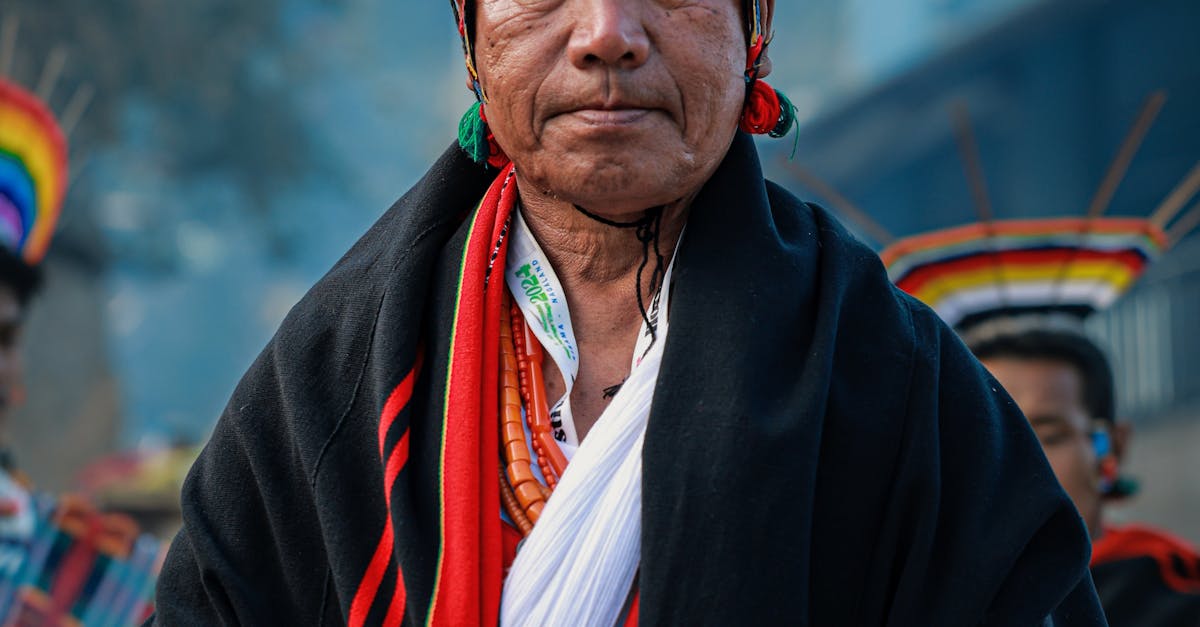Indian at ISS
- Indian astronaut Group Captain Shubhanshu Shukla is scheduled to conduct scientific research aboard the International Space Station (ISS).
- Why significant: This marks India’s active participation with defined scientific responsibilities in an international human space mission, a source of national pride.
- Key Research: Study human adaptation to the space environment, including physical (muscle/bone), cognitive (memory, attention), and physiological responses.
- Why this research: Essential for ensuring astronaut health, safety, and efficiency during long-duration missions, supporting future plans like India’s own space station.
- Key Research: Investigate the cognitive impact of prolonged exposure to electronic displays in microgravity.
- Why this research: To guide the design of astronaut-friendly interfaces and technology for space.
- Key Research: Examine skeletal muscle dysfunction and evaluate therapeutic interventions in space conditions.
- Key Research: Study the revival and survival of extremophiles like Tardigrades in space.
- Why these studies: Advance scientific understanding of human factors and life’s resilience in space, contributing to global knowledge and India’s self-reliance in space technology.
- The mission follows discussions during Prime Minister Narendra Modi’s visit to the United States and reflects India’s progress in its human spaceflight program alongside Gaganyaan.
- Utilizing the ISS is vital for preparing for India’s planned Bharatiya Antariksh Station by 2035.
Varma Impeachment
- Government plans to introduce an impeachment motion against Justice Yashwant Varma of the Allahabad High Court. Why: This is the main action being taken.
- The motion follows a Supreme Court-appointed panel’s finding of unaccounted cash at his residence. Why: This is the serious allegation leading to the impeachment process.
- The panel found Justice Varma failed to explain the source of the cash, terming it serious misconduct. Why: This confirms the official investigation’s conclusion that warrants action.
- Justice Varma refused to resign despite the Supreme Court’s urging. Why: His refusal led the government to proceed with the formal impeachment process.
- Government is seeking cross-party support, which opposition parties indicate they will likely give based on judicial accountability. Why: Shows the political backing and likelihood of the motion progressing.
- Due to the prior SC inquiry, Parliament can proceed directly to the impeachment motion without forming a new committee. Why: Explains a specific procedural efficiency in this case.
- If successful, it would be the first impeachment of a High Court judge in India. Why: Highlights the unprecedented and historic nature of the event.
- The case emphasizes judicial accountability and integrity in the higher judiciary. Why: Places the event within a broader discussion on judicial standards.
Nightingale Awards 2025
-
News Point: The President of India, Smt Droupadi Murmu, presented the National Florence Nightingale Awards for 2025 at Rashtrapati Bhavan on May 30, 2025.
Why: This marks the official recognition ceremony for outstanding nursing professionals in India by the head of state.
-
News Point: 15 nursing professionals received the award, recognizing their exemplary contributions to healthcare and public service.
Why: Highlights the dedication and vital role of these individuals in the health sector across different capacities (clinical care, public health, education, administration).
-
News Point: The National Florence Nightingale Awards were instituted in 1973 by the Ministry of Health and Family Welfare.
Why: Provides context on the long-standing tradition and governmental significance of this honour for nurses.
-
News Point: Awards are given to nursing personnel serving in Central and State Governments, Union Territories, and Voluntary Organizations across categories like Registered Nurses and Midwives, Registered Auxiliary Nurses and Midwives, and Registered Lady Visitors.
Why: Shows the broad scope and inclusivity of the award, covering various roles and sectors where nurses serve.
-
News Point: Each award includes a Certificate of Merit, a cash prize of Rs 1,00,000, and a medal.
Why: Details the tangible recognition provided to the awardees.
-
News Point: The award is named after Florence Nightingale (1820–1910), founder of modern nursing known for her work during the Crimean War and establishing formal nursing education.
Why: Explains the historical figure honoured by the award and her foundational contribution to the nursing profession globally.
Mustard Oil Policy Regs
Date: 4-06-2025
Mainspedia TOPIC: Mustard oil Policy and regulation
- FSSAI banned blending of mustard oil (2021): Why? To prevent adulteration and increase domestic mustard production, aiming for safety.
- Supreme Court split verdict on GM mustard DMH-11 (2024): Why? Rejected approval due to insufficient human health data, despite DMH-11 having lower erucic acid and promising higher yields.
- High Erucic Acid in Indian Mustard Oil (40-54%): Why? It’s a naturally present fatty acid linked to health risks like heart disease and liver damage; globally safe levels are <5%.
- Ban on blending removed a safer option: Why? Blending dilutes erucic acid and improves fatty acid profiles, making it potentially safer than pure high-erucic mustard oil.
- GM Mustard (DMH-11) has lower erucic acid (30-35%): Why? It’s a GM variant developed to address the high erucic acid issue and boost yields/reduce imports, though still higher than global safe levels.
- Need for a balanced strategy: Why? Both the blending ban and SC verdict haven’t fully solved the high erucic acid problem; requires regulating safe blending and accelerating low-erucic GM development.

3 DPSUs Get Miniratna
- The Ministry of Defence has approved the conferment of “Miniratna (Category-I)” status to three Defence Public Sector Undertakings (DPSUs): Munitions India Limited (MIL), Armoured Vehicles Nigam Limited (AVNL), and India Optel Limited (IOL).
- Why: These companies were among the seven PSUs carved out of the erstwhile Ordnance Factory Board (OFB) in 2021 as part of the Government’s defence sector reforms to enhance functional autonomy and efficiency.
- Why they qualified: They transformed into profit-making corporate entities in a short span and met the eligibility criteria for Miniratna-I status, including continuous profit for three years, pre-tax profit of Rs. 30 crores or more in at least one year, and a positive net worth. They also achieved significant milestones like substantial growth in sales (e.g., MIL sales from Rs. 2571.6 Cr to Rs. 8282 Cr) and exports (e.g., MIL exports from Rs. 22.55 Cr to Rs. 3081 Cr), and increased indigenization (e.g., AVNL achieving 100% engine indigenization).
- Why it matters (Impact): Miniratna status grants these companies greater autonomy to invest, raise capital, and make quicker decisions. This empowerment is expected to boost their efficiency, competitiveness, global reach, and accelerate their growth trajectory in defence production and exports.
RadioX Star
- Discovery of a unique celestial object emitting simultaneous radio waves and X-rays.
- Why: The simultaneous emission of these different radiation types from a single transient source is highly unusual.
- It emits bursts every 44 minutes, placing it in a new class called long-period radio transients.
- Why: This period is much longer than the milliseconds to seconds seen in typical rapidly rotating pulsars, highlighting its distinct nature.
- The exact nature of the object is still unknown.
- Why: Possible identities include a magnetar (a highly magnetic neutron star) or a white dwarf in a binary system. These are very different stellar remnants, making its true identity a significant mystery revealing new astrophysical processes.
- Located about 15,000 light-years away in the Milky Way galaxy.
- Why: Provides context for its distance and location, crucial for further observation.
- Studied using data from telescopes including NASA’s Chandra X-ray Observatory.
- Why: Indicates the advanced observational capabilities needed to detect and characterize this unique object.
BIPV
- BIPV integrates solar panels directly into building structures like façades, roofs, and windows, acting as both building material and power generator.
- It is relevant news because India’s rapid urban vertical growth limits traditional rooftop solar space, making BIPV a crucial scalable, land-neutral alternative to meet rising energy demand and clean energy goals.
- BIPV is needed in India as conventional rooftop solar alone cannot meet the energy gap in densely populated cities and high-rises due to space constraints, while BIPV can utilise larger building surface areas for higher power generation.
- The status is gaining momentum with falling costs and sustainability focus, seen in notable installations across commercial, public, and institutional buildings in India.
- Scaling faces challenges like high initial cost, lack of dedicated policies/incentives, insufficient expertise, and low awareness. Solutions include targeted subsidies, regulatory integration into building codes, pilot projects, and boosting domestic manufacturing.
Ladakh Job Domicile
- New regulations notified for Ladakh covering land, jobs, and cultural preservation, addressing long-standing concerns of civil society groups like LAB and KDA amidst demands for Sixth Schedule status. (Why: Centre’s response to activism and demands)
- Introduces domicile requirement for government jobs (15 yrs residence, or 7 yrs schooling + Class 10/12, or children/spouses of specific categories), establishing a specific definition for Ladakh. (Why: Protects local employment, addresses fears of demographic change not covered by previous J&K laws)
- Sets procedure for obtaining domicile certificates via Tehsildar/Deputy Commissioner. (Why: Formalises the new domicile rule)
- Caps total reservation in jobs and professional institutions at 85% (SC, ST, OBC, others) plus 10% EWS. (Why: Expands reservation limits beyond previous 50% cap in institutions)
- Recognises English, Hindi, Urdu, Bhoti, and Purgi as official languages, with support for Shina, Brokskat, Balti, and Ladakhi. (Why: Acknowledges local languages, affirms cultural identities, a shift from older laws)
- Reserves one-third of seats for women in Leh and Kargil LAHDCs. (Why: Promotes gender empowerment and inclusive governance)
- Regulations shift from adapted J&K laws to UT-specific rules. (Why: Tailors governance to Ladakh’s unique context post-2019)
- Challenges remain: Regulations are executive orders under Article 240, easily alterable; lack constitutional status unlike Sixth Schedule; no explicit land safeguards for non-domiciles; LAHDCs lack legislative power. (Why: Highlights limitations of the regulations compared to demands for constitutional protection and autonomy)
India Polar Research Vessel
- Garden Reach Shipbuilders and Engineers Limited (GRSE) signed an MoU with Norway’s Kongsberg firm to develop India’s first indigenously built Polar Research Vessel (PRV). Why: Marks an important step for indigenous shipbuilding and international collaboration in specialized vessel development.
- A PRV is a ship supporting research in polar and ocean areas, tailored for the National Centre for Polar and Ocean Research. Why: Provides a dedicated platform for scientific exploration in challenging environments.
- The vessel will support India’s existing research stations (Bharati, Maitri in Antarctica, Himadri in Arctic). Why: Strengthens India’s polar and ocean research missions and logistical capabilities in remote regions.
- Equipped with advanced instruments, it will explore marine ecosystems and deep-sea biodiversity. Why: Enhances India’s scientific capabilities for critical ocean and climate research.
- The project reinforces India’s commitment to MAHASAGAR (Mutual and Holistic Advancement for Security Across the Regions) and aligns with Sagarmala 2.0 goals. Why: Aims to position India as a global maritime leader, enhancing regional security and sustainable development.
- Collaboration with Norway aligns with ‘Make in India’ and Atmanirbhar Bharat goals by boosting indigenous shipbuilding capability, utilizing design expertise. Why: Crucial for self-reliance and growth in India’s maritime sector.
- Expected within five years at an estimated cost of Rs. 2,600 crore, to be built by GRSE in Kolkata. Why: Provides a timeline and scale for this significant national project.
Smart IoT Future
- Why in News? The Internet of Things (IoT) is a transformative force profoundly impacting daily lives by infusing intelligence into everyday things, making homes and systems more intuitive, efficient, and secure.
- What is IoT? It’s a network of physical devices embedded with sensors, software, and connectivity that collect, exchange, and act on data.
- Key Features: Includes Connectivity, Automation & Intelligence, Remote Monitoring, Interoperability, Scalability, Data Analytics & AI Integration, and Customization.
- Key Components: Sensors & Actuators (physical interaction), Connectivity (communication protocols), IoT Gateways (bridge to cloud), Cloud Computing & Data Processing (analysis), and User Interface (human control).
- Key Applications: Smart Cities (traffic, energy, waste), Smart Homes (energy, security), Healthcare (remote monitoring, wearables), Smarter Transportation (fleet tracking, connected vehicles), Industrial & Workplace Safety (predictive maintenance, hazard monitoring), and Agriculture & Food Safety (precision farming, supply chain tracking).
- Risks and Challenges: Include Cybersecurity Vulnerabilities (weak passwords, insecure APIs), Unauthorized Access (privacy concerns, data leaks), Lack of Standardization/Interoperability (fragmentation), Scalability/Infrastructure Demands (data overload, energy), and AI-Powered Cyber Threats (manipulating data).
- Strengthening Measures: Enhance IoT Security (MFA, PKI, updates, AI analytics), Improve Interoperability & Standardization (universal standards), Strengthen Compliance Frameworks (data protection laws like India’s DPDP Act, GDPR), and Build Robust Infrastructure (5G, Edge computing).
Rajgir Spring Antimicrobial
- Recent research shows bacteria isolated from Rajgir hot spring exhibit notable antimicrobial activity.
- Rajgir’s hot springs unique thermal and chemical conditions harbour thermophilic and extremophilic bacteria like Bacillus, Geobacillus, and Anoxybacillus.
- These bacteria produce valuable bioactive compounds, including antibiotics and enzymes, displaying antimicrobial properties against pathogens.
- The finding holds significant potential for developing new antibiotics and biotechnology applications, crucial given rising antibiotic resistance.
- Antimicrobial activity is the ability of a substance or organism to kill or inhibit microorganisms, vital for controlling infections and developing new drugs.
- Rajgir Hot Spring is a natural geothermal spring in Bihar whose environment provides the habitat for these scientifically significant bacteria.
ML in Gaming
- Why in News: India plans to include online real money gaming (RMG) under the Prevention of Money Laundering Act, 2002 (PMLA).
- RMG allows staking real money; India is a large and growing market driven by data, smartphones, and digital payments, but vulnerability is high due to unemployment, celebrity endorsements, and poor digital literacy.
- Current regulation is fragmented across states and national laws, with foreign investment banned in betting/gambling.
- Money laundering typically involves Placing illicit funds, Layering through complex in-game transactions, and Integration by withdrawing “cleaned” money.
- PMLA inclusion is needed due to regulatory gaps exploited by illegal offshore operators for tax evasion and fraud (e.g., Mahadev app case).
- It strengthens accountability, helps monitor virtual assets, combats potential terror financing via anonymous gameplay, and improves cybersecurity against malware and fraud.
- Challenges include tracking funds through mule accounts/shell entities and vast micro-transactions, misuse of in-game assets, multiple payment methods, cross-border issues with offshore platforms, difficulty proving laundering intent vs. high-stakes play, evolving fraud techniques, and fragmented enforcement with ineffective penalties.
- Balancing regulation and user convenience can involve tiered KYC and regulation based on risk, algorithmic accountability, intelligence-led enforcement, consumer protection, and international cooperation.
- A balanced framework integrating PMLA with tech-driven, risk-based rules is key for financial integrity and safety.

Kochi Container Accident
- A container ship sank off Kochi carrying 643 containers, including 13 known to be hazardous, triggering a tier-2 maritime emergency.
- The Centre for Marine Living Resources and Ecology (CMLRE) under the Ministry of Earth Sciences is leading an urgent 10-day oceanographic study (June 3-12, 2025) in the southeastern Arabian Sea, focusing on the wreck site.
- The study aims to assess the immediate and long-term ecological and biogeochemical impacts of the hazardous cargo and oil spill on marine ecosystems, coastal habitats, and fisheries.
- Concerns include toxic effects on marine biodiversity, contamination of fish stocks, and potential health risks to coastal populations, especially as the area is a critical breeding ground for commercially important fish.
- Rapid monitoring, collection of water, sediment, and marine life samples, and analysis of chemical and biological parameters (hydrocarbons, heavy metals, plankton, etc.) are being conducted to determine the pollution’s scale and severity.
- The study involves inter-agency coordination (Coast Guard, NDRF, Customs, state agencies) for containment, cleanup, and risk mitigation.
- Authorities have implemented a 20-nautical-mile fishing ban around the wreck site and issued public advisories to avoid contact with contaminated materials to protect public safety and livelihoods.
- The findings will guide immediate cleanup efforts and support long-term strategies for hazardous cargo management and marine disaster preparedness, minimizing ecological damage and enhancing India’s response capacity.
Trojan Drone Attack
- Ukraine used a “Trojan Horse” tactic by hiding FPV drones in wooden cabins on trucks to smuggle them deep into Russia. Why: This method allowed covert infiltration and launch of attacks far behind enemy lines using deception.
- The attacks targeted multiple Russian air bases, some located thousands of kilometres from the Ukraine border. Why: This demonstrated Ukraine’s capability for deep strikes and challenged Russia’s security far from the front lines.
- Ukraine claimed significant damage, including the destruction of strategic bombers and A-50 early-warning planes. Why: These are high-value, difficult-to-replace assets, impacting Russia’s strategic military capabilities.
- The attack used numerous small FPV drones for a deep, coordinated strike, a departure from previous tactics. Why: Experts see this as a potential shift in modern warfare, highlighting the effectiveness of low-cost drone tactics against expensive, traditional military assets.
- The mission was planned for 18 months, indicating a sophisticated and long-term covert operation by Ukraine’s security services. Why: Shows the depth of planning and operational capability required for such audacious strikes deep inside enemy territory.



















